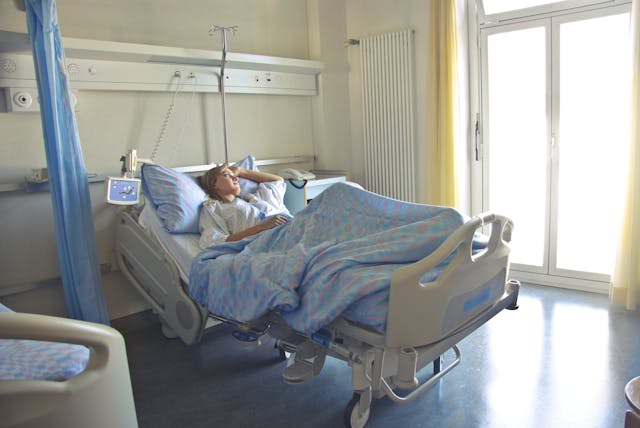Plastic surgery is becoming more and more socially acceptable. With so many practices offering new treatments which can give patients the physical appearance they have always dreamed of, many people are taking the plunge and booking in for their chosen surgeries. Whilst these surgeries are typically done with the most care and attention possible, it is also essential that patients take care of themselves and prioritise their aftercare and recovery.
The recovery procedure may be different for everyone depending on which treatment you have opted for, but it reigns true that regardless of what you decide to have you must follow your aftercare treatments thoroughly to avoid the risk of infection and possible complications.
Here are just a few of the most important aftercare instructions you should be sticking to aside from what your surgeon has advised:
Clear Your Schedule
You should be prepared to clear the schedule that follows your surgery from two weeks to a month depending on the rate at which you recover. Clearing your schedule means making sure that the time is dedicated to your recovery only. This would also mean you avoid driving, physical activities such as working out, and most importantly not going to work. Make sure that you have time off approved for the weeks that follow your surgery, as you will need to be prepared for any emergencies. Also, you should arrange for child care if your children are not old enough to look after themselves, as you will be bed bound meaning you can not tend to their needs. Preparation is key, so have your schedule cleared ahead of time.
Hydrate Well
Additionally, an important element of getting yourself on the fastest road to recovery is to make sure you are drinking enough fluids. This means you must be having more than 2 litres of water per day, as you need to make up for the fluids that were lost during the surgery. Drinking water is the simplest yet most common way you can slow down your recovery process, so make sure you are drinking the right amount of water during recovery.
Maintain a Good Diet
Many patients make the mistake of eating fast food whilst they are recovering from surgery as it seems like the easiest option at that time. This is the worst thing you can do and possibly tamper with your overall recovery. Aim to eat a balanced diet during and after recovery including meals that are high in vitamins and proteins. Whole foods such as fruits and vegetables will also guide you through a good recovery. Having a good diet will allow your scarring to heal faster and also re-build any of the nutrients that may have been lost during surgery.
Have Your Meals Ready
During your recovery, you will likely not be fit enough to get up and cook your meals. For this reason, you should have all of the healthy snacks and meals readily prepared and cooked to avoid needing to strain yourself in the kitchen. It might be easier to have freshly cooked meals if you have a partner or family member to look after you, but if not you should pre-cook and freeze as many meals as possible.
Take Your Surgeon’s Advice
Above all else, you should make sure that you are taking your surgeon’s advice for your aftercare procedures. They will be able to advise on a tailored recovery routine that would involve what you should be doing and when. For example, if they provide you with creams to put onto your scarring every 3 hours, you need to make sure you follow this religiously. Also, do not neglect the importance of keeping your surgeon in the loop. If something does not seem right, you should tell them sooner rather than later. Any reputable surgeon will offer a 24-hr support line for if anything goes wrong, or if you simply have some questions that need answering. Kshem Yapa, a reputable plastic surgeon offers patients 24-hr support and a helpline to a cosmetic nurse who can help with enquiries.
Have Supportive Clothing Prepared
When recovering from procedures such as breast augmentations, it is advised that patients wear appropriate clothing to support them through their recovery. The practice might provide you with supportive bras made for medical purposes, but you should avoid wearing anything that will cause friction or will rub against the healing area. Also, it would be wise to have oversized clothing aside from what the doctors have advised you to wear, as you will likely be struggling to change in and out of clothing and this process should be made as seamless as possible.
Keep Yourself Busy
It’s important for patients to understand that this will be a long time sitting in bed, therefore you should plan to keep yourself busy during this time. Whilst sitting on your phone for the full two weeks may seem inviting, you will still become restless. Plan for different activities that don’t require much movement such as reading books, taking online courses, and other activities which will offer a good feeling. You should take this time to take the rest you deserve, as you might not be able to experience it for another while!
Bottom Line
Overall, plastic surgery can take a lengthy amount of time out of your schedule. Although it will be a struggle, managing your time and prep effectively will ensure that your recovery goes smoothly, and you can enjoy the positive results of your surgery sooner rather than later. Be sure to follow your surgeon’s instructions first and foremost, have nutritious meals prepared for recovery to save yourself time, have things such as books and films ready to keep you busy whilst you are resting, and be sure to have accessories that will support your recovery such as supportive clothing or surgical pillows. Never be afraid to ask for help from friends and family, this is a difficult time in which you need to take as much care as possible.






















